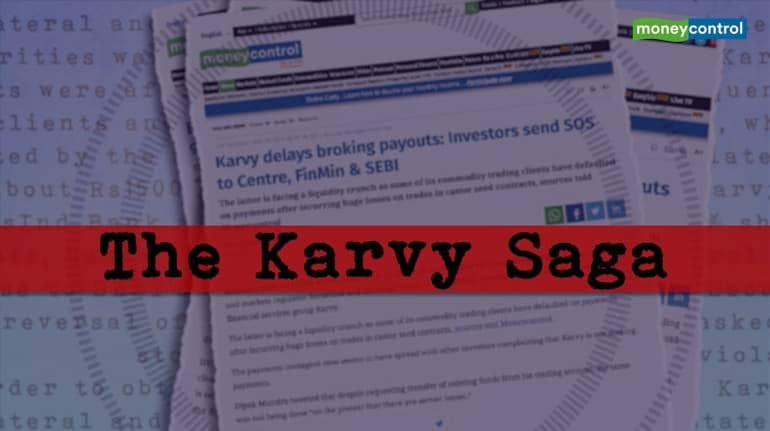



After many months since the infamous Karvy scam shook the share markets, its promoter C. Parthasarathy was arrested by the Hyderabad police on Thursday. The chairman of Karvy Stock Broking Ltd (KSBL) was held for allegedly defaulting on a loan taken from IndusInd Bank. The Central Crime Station (CCS) police made the arrest after registering a case against KSBL on the basis of a complaint filed by the bank.
A trip down memory lane will reveal the ugly story leading up to the eventual arrest of Parthasarathy. The Karvy story, nay the Karvy scam, is all about smart promoters who employed their super skills to skirt rules and the system to get loans from banks by pledging the securities of its clients clandestinely. In the process, they didn’t hesitate to break the trust the investors and depositors alike had reposed in them.
It all began sometime in late 2019 when the Securities and Exchange Board of India (SEBI), to its dismay, learnt that Karvy had pledged the shares of its clients without their knowledge to raise funds for the group firms.
Karvy had used – rather misused – the power of attorney (PoA) obtained from its clients. It quietly used the PoA to transfer the shares of its clients to its related entities who thereafter pledged them with banks for raising fresh funds.
An unreported DP (depository participant) account was used by Karvy to facilitate, rather hide, the misuse of client shares to raise funds for its group firms. A depository has to notify the exchanges all its DP accounts. This unreported DP account was used as a conduit for its share pledge exercise.
The whole thing came into light when an investigation by the National Stock Exchange found Karvy to be indulging in an act not permitted by rules. Karvy had reportedly transferred the securities of clients received in pay-out from the pool account to this specific unreported demat account. These should have gone to the clients’ demat account, in fact. Some fully-paid clients’ shares existing in their demat accounts, too, were allegedly transferred to this unreported demat account.
The market regulator SEBI quickly barred Karvy from taking any new clients in respect of its broking activities. Depositories such as NSDL and CDSL were told not to act upon any instruction from Karvy. They were also instructed not to allow transfer of any shares from the unreported account.
Karvy chose to execute the PoA given by clients for “off market transactions”. The enormity of its wrong-doing was not lost on the regulator. The combined effect of the actions taken by the market regulator and the depositories alike had put the banks which had lent against pledged shares pledged by Karvy by misusing the PoA in a fix.
Much before the discovery of the Karvy scam, there was a proposal to tag the stocks. Tagging stocks could have helped stake-holders in the entire chain to track the legal owners of shares. But the proposal never saw the light of the day.
Did Karvy owners lead the banks up the garden path? Or, did banks fail to do proper due diligence? The fact, however, is that their money is in jeopardy now since the `clandestinely pledged shares’ were reassigned to depository accounts of the original shareholders.
Fixing the accountability for the Karvi scam will go a long way in cleansing the system of shenanigans of smart kinds.
Discover the latest Business News, Sensex, and Nifty updates. Obtain Personal Finance insights, tax queries, and expert opinions on Moneycontrol or download the Moneycontrol App to stay updated!
Find the best of Al News in one place, specially curated for you every weekend.
Stay on top of the latest tech trends and biggest startup news.